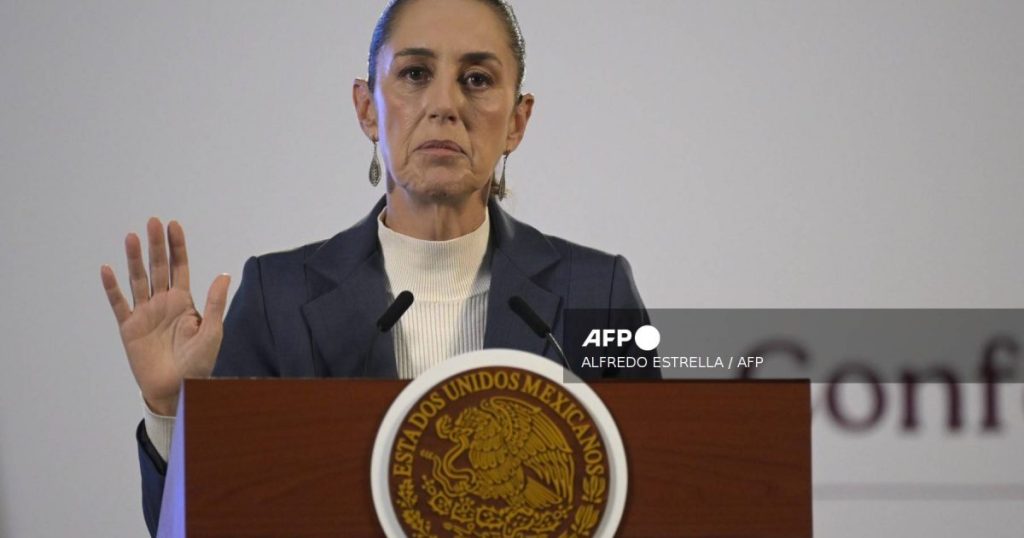On October 2, 2023, Mexican President Claudia Sheinbaum made a significant move by offering an official apology for the 1968 massacre of students by the army, marking one of her initial actions in office. Sheinbaum, who identifies herself as a “daughter of ’68,” emphasized that the events of that tragic day would not be forgotten. Official accounts indicate that around 30 students were killed when security forces opened fire during a peaceful protest in the Tlatelolco district of Mexico City, just days before the Mexican Olympic Games. However, relatives and activists contest this number, asserting that the actual death toll may have been as high as 400. This stark difference in figures underscores the deep-seated pain and unresolved tensions associated with the historical event.
In her first press conference following her inauguration as Mexico’s first female president, Sheinbaum announced plans to issue a decree classifying the killings as a crime against humanity. This declaration reflects a commitment to human rights and an acknowledgment of the past injustices faced by the students and their families. She reinforced her stance by promising that security forces would no longer be employed to assault or repress the Mexican populace. Her statements were delivered just prior to an anticipated demonstration in Mexico City, which was organized to demand justice for the victims of the 1968 massacre, highlighting the ongoing quest for accountability among survivors and activists.
Sheinbaum’s background adds personal significance to her actions. Born to immigrant parents during a period of political unrest in the early 1960s, she has a familial connection to the student protests as her mother was forced out of her position as a university professor for speaking out against the massacre. This personal history positions Sheinbaum in solidarity with the ideals of past movements striving for social change and governmental accountability. On the same day as her remarks, thousands gathered for their traditional annual remembrance of the fallen students, emphasizing the collective memory and ongoing reverberations of that fateful day in 1968.
The response to Sheinbaum’s apology was mixed among the demonstrators. Some protesters, notably the “black bloc,” clashed with police, throwing stones and firecrackers at officers stationed near the Zócalo, which is significant due to its proximity to the presidential palace. Voices of dissent, such as 90-year-old Oscar Menendez, stressed that apology alone was insufficient. He articulated a more profound desire for justice, stating that genuine accountability is necessary for those who lost their lives in pursuit of a better Mexico. Conversely, some, like 76-year-old Angel Rodriguez, viewed the apology as a step in mending relationships between the populace and the state, suggesting that such acknowledgments should have been made by her predecessors long before now.
Sheinbaum’s governance arises amidst complex challenges, particularly related to escalating criminal violence, much of which is intertwined with drug trafficking and organized crime. The nation grapples with roughly 450,000 lives lost since the government initiated its war on drugs in 2006. With a strong mandate from a landslide victory in the June elections, Sheinbaum aims to sustain the left-wing reform agenda set forth by Andres Manuel Lopez Obrador, her predecessor and ally, who left office with an impressive approval rating. Transitioning from Obrador’s leadership, which was underscored by its social programs aimed at alleviating poverty, Sheinbaum will undoubtedly face the daunting task of addressing the country’s security challenges head-on.
As she outlines her forthcoming security plan, there is an unspoken expectation that Sheinbaum will navigate the delicate balance between maintaining order and upholding human rights, especially in light of past injustices. The historical memory of the 1968 massacre plays a critical role in framing the current discourse on governance, accountability, and justice. The outcry from activists and the general populace emphasizes a collective demand for more than words—rooted in an aspiration for a systemic change that acknowledges past wrongs while paving the way for transparent governance and social equity. This collective memory ensures that the past continues to influence the present, as 2023 marks a pivotal chapter in Mexico’s history and ongoing struggle for truth and reconciliation.


